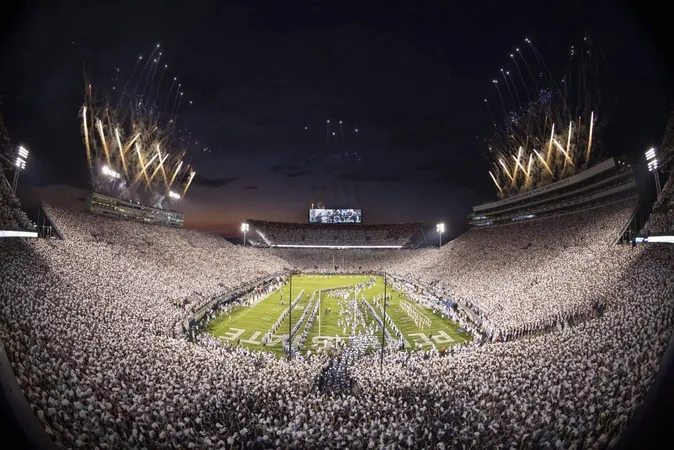
These Mind-Blowing Robots ‘Eating’ Each Other Could One Day Rule the Planet
2025-07-26
Author: Ying
The Future of Robotics: Survival of the Fittest
In a whirlwind of technological advancements, a team at Columbia University has unveiled a concept that blurs the lines between science fiction and reality: robots that 'consume' one another to thrive and evolve. Equipped with a groundbreaking feature known as 'robotic metabolism,' these machines possess the ability to adapt, self-repair, and even create ecosystems. This innovation sparks a tantalizing question—could these autonomous robots revolutionize industries or pave the way for interplanetary exploration?
Revolutionizing Robot Design: Less Is More
Forget the sleek, human-like robots of the past. Researchers are breaking free from outdated models, opting instead for minimalist designs that prioritize functionality over complexity. Enter the Truss Link robots, small and modular units built like adaptable building blocks. Their simplistic yet brilliant design allows them to connect and form more intricate structures, setting the stage for a revolutionary approach in robotics that mirrors the evolutionary tactics of nature itself.
How Robots ‘Eat’ to Thrive
At the core of this innovation lies a remarkable capability: robots can 'consume' their malfunctioning counterparts. When a unit within a robot runs low on power, instead of powering down, it sheds the inactive piece and seamlessly incorporates a charged one. This self-repairing ability ensures continued function, making these robots game-changers for mission-critical scenarios like deep-sea or space exploration.
The Evolutionary Edge of Robotics
But survival is just the beginning. These robots can dynamically evolve, forming complex shapes and structures that adapt to their surroundings. Imagine a colony of robots on a distant planet autonomously constructing habitats or repairing themselves in harsh environments—eliminating the dependency on human intervention. This vision redefines what robots can achieve, propelling them beyond tasks we once deemed impossible.
A Glimpse into the Future of Space Exploration
The implications for space exploration are thrilling. If robots are capable of self-repair and evolution, they could revolutionize missions to Mars and beyond. As traditional missions often require human oversight for repairs and technical issues, these autonomous machines could handle tasks like building infrastructure and conducting experiments independently, paving the way for a new era in exploration where human presence is no longer a prerequisite.



 Brasil (PT)
Brasil (PT)
 Canada (EN)
Canada (EN)
 Chile (ES)
Chile (ES)
 Česko (CS)
Česko (CS)
 대한민국 (KO)
대한민국 (KO)
 España (ES)
España (ES)
 France (FR)
France (FR)
 Hong Kong (EN)
Hong Kong (EN)
 Italia (IT)
Italia (IT)
 日本 (JA)
日本 (JA)
 Magyarország (HU)
Magyarország (HU)
 Norge (NO)
Norge (NO)
 Polska (PL)
Polska (PL)
 Schweiz (DE)
Schweiz (DE)
 Singapore (EN)
Singapore (EN)
 Sverige (SV)
Sverige (SV)
 Suomi (FI)
Suomi (FI)
 Türkiye (TR)
Türkiye (TR)
 الإمارات العربية المتحدة (AR)
الإمارات العربية المتحدة (AR)